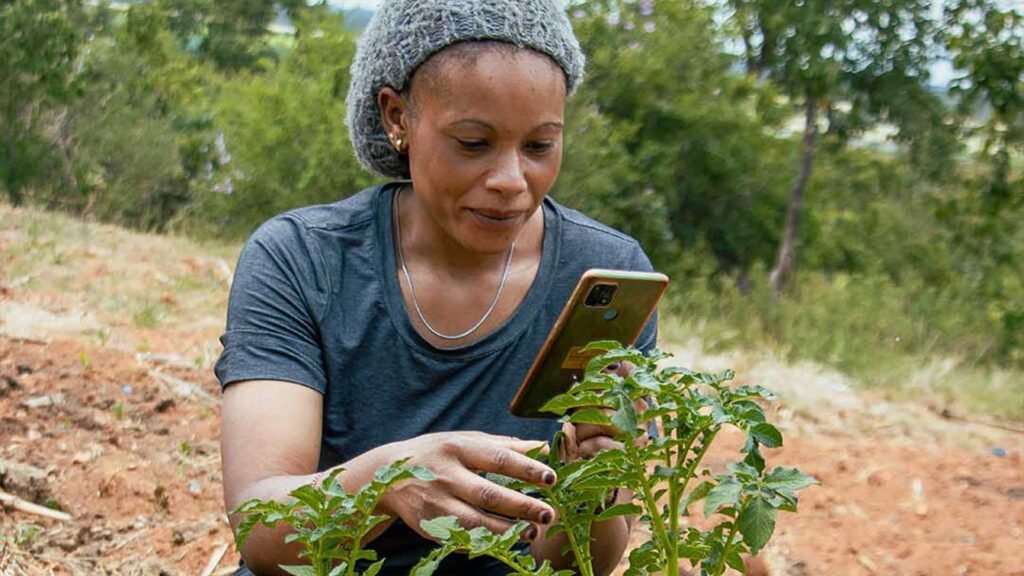Unlocking the Power of Digital Agriculture: The Role of Tailored Digital Content and Ecosystem Engagement

In today’s rapidly digitizing world, the agricultural sector, especially for smallholder farmers, faces unique challenges and opportunities. The Maudhui Digiti Project has been pivotal in addressing these challenges by highlighting the critical role of tailored digital content, access, and content creation in leveraging the developmental benefits of digital services in agriculture. This policy brief sheds light on the importance of these factors and provides actionable recommendation.
The Issue: Bridging the Digital Divide in Agriculture
Smallholder farmers and underserved communities are often at the frontline of agricultural production, yet they face significant barriers in accessing relevant and timely agricultural information. The lack of tailored and accessible digital content, coupled with inadequate capacity to create or contribute to digital content, has led to the underutilization of digital services in agriculture.
This issue is particularly critical as these communities are highly vulnerable to agricultural risks, climate change impacts, and livelihood vulnerabilities. Addressing these challenges is crucial for promoting sustainable agricultural practices, enhancing food security, and improving the livelihoods of smallholder farmers, particularly women, who make up 67% of this group.
The Power of Tailored Digital Content and Ecosystem Engagement
The policy brief emphasizes the significant impact that tailored digital content can have on smallholder farmers and underserved communities. Unlike generic content, tailored digital content enhances engagement by addressing specific needs, increasing perceived benefits, and fostering greater participation. This personalized approach is particularly effective in providing context-specific guidance, which empowers farmers to make informed decisions, improve productivity, and build r…
Moreover, the ability to access and create digital content plays a crucial role in how these communities interact with digital ecosystems. When farmers are equipped with the skills to access and generate digital content, they can contribute to knowledge sharing, enhance their farming practices, and benefit from the collective wisdom of their peers.

Policy Recommendations: Actions for Sustainable Development
To unlock the full potential of digital agriculture, the policy brief outlines several key recommendations for policymakers:
- **Develop and Disseminate Tailored Digital Content**: Invest in initiatives that curate and deliver customized digital content tailored to the specific needs of smallholder farmers and underserved communities. This involves fostering collaborations between agricultural experts, technology developers, and local communities to ensure relevance and accessibility.
- **Enhance Access to Digital Content**: Improve digital infrastructure and connectivity in rural areas, making digital content more accessible. This includes investing in affordable internet services and devices, as well as implementing training programs to boost digital literacy among farmers.
- **Build Capacity for Digital Content Creation**: Support educational programs that teach digital content creation skills relevant to agriculture. Establish community-driven platforms where farmers can share, contribute, and collaborate on digital content, fostering a culture of knowledge exchange and innovation.
- **Incentivize the Adoption of Digital Services**: Introduce incentives, subsidies, or tax breaks to encourage farmers to adopt digital tools and services. Partner with private sector stakeholders to develop affordable and user-friendly digital solutions tailored to the unique needs of smallholder farmers.
- **Monitor and Evaluate Digital Interventions**: Establish mechanisms to monitor and evaluate the impact of digital interventions on agricultural productivity and community development. Continuously adapt policies based on the evolving needs of smallholder farmers and underserved communities.
A Call to Action
The Maudhui Digiti Project’s policy brief is a call to action for all stakeholders involved in digital agriculture. By prioritizing the development of tailored digital content, improving access, and enhancing the capacity for digital content creation, policymakers can play a crucial role in transforming the agricultural sector. These actions will not only bridge the digital divide but also empower smallholder farmers to leverage digital tools for sustainable agricultural development.
This initiative is about more than just improving agricultural practices—it’s about transforming lives. By enhancing food security, creating jobs, and improving livelihoods, the Maudhui Digiti Project is helping to build a more resilient and inclusive agricultural sector in Kenya.
Reference
This blog post is based on the “The Effect of Tailored Digital Content, Ability to Access and Create, on Leveraging Developmental Benefits of Digital Services in Agriculture, and Interactions with the Digital Ecosystem” policy brief, prepared by the African Centre for Women, Information and Communications Technology (ACWICT). The policy brief was published in March 2024.